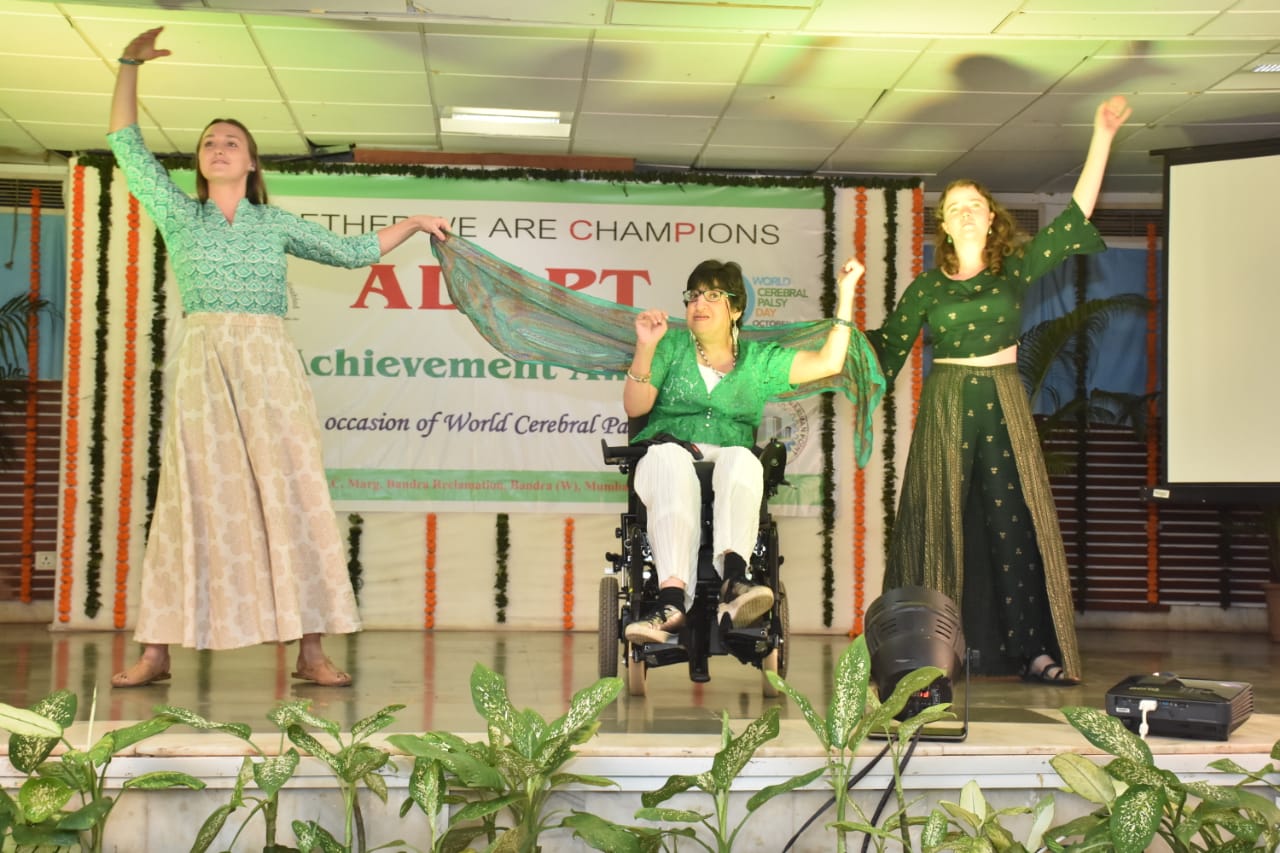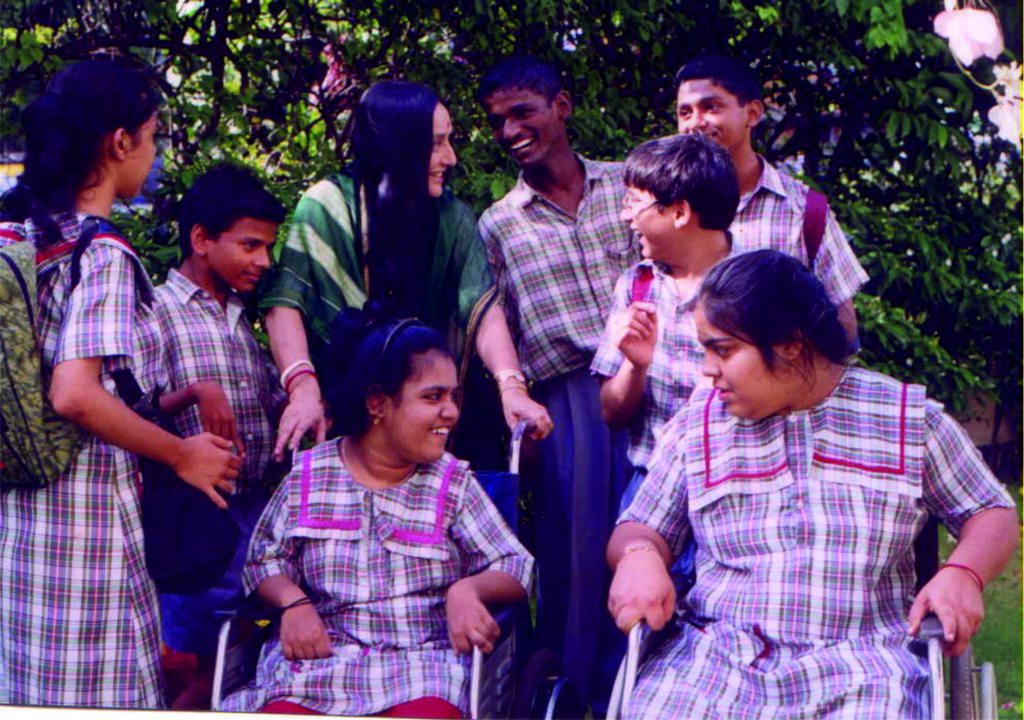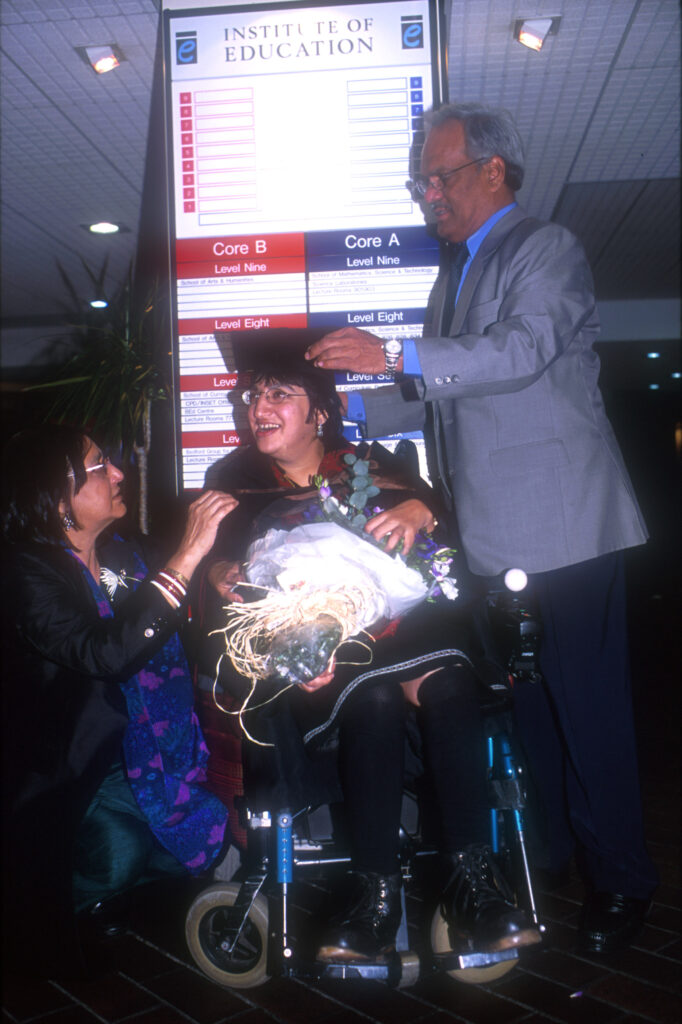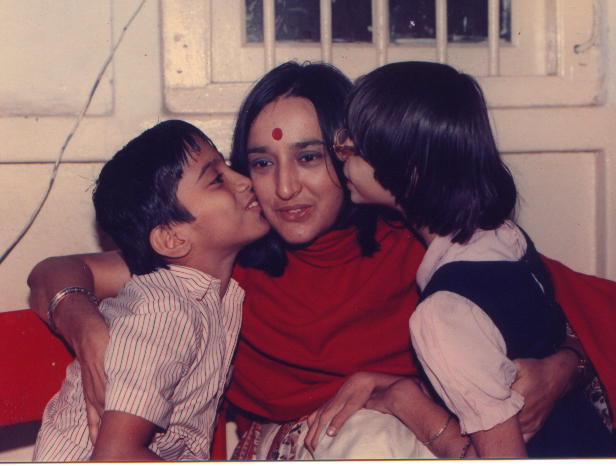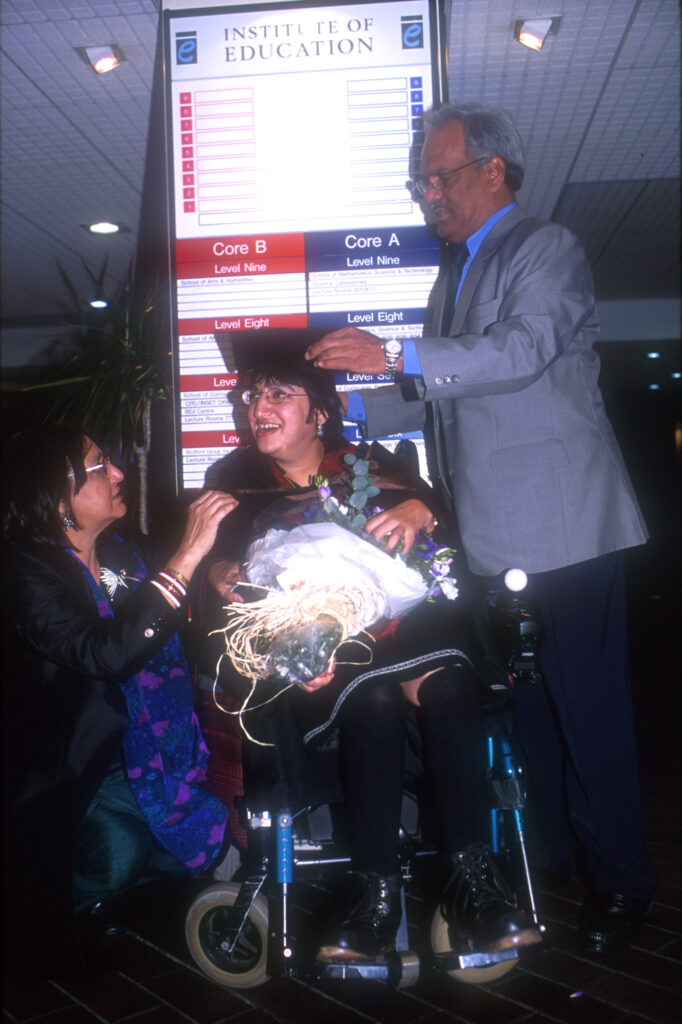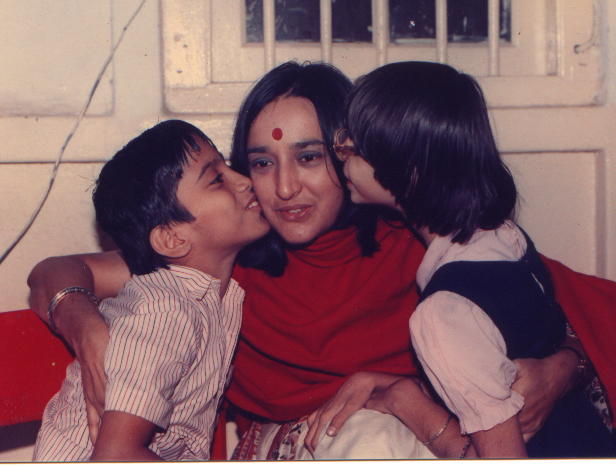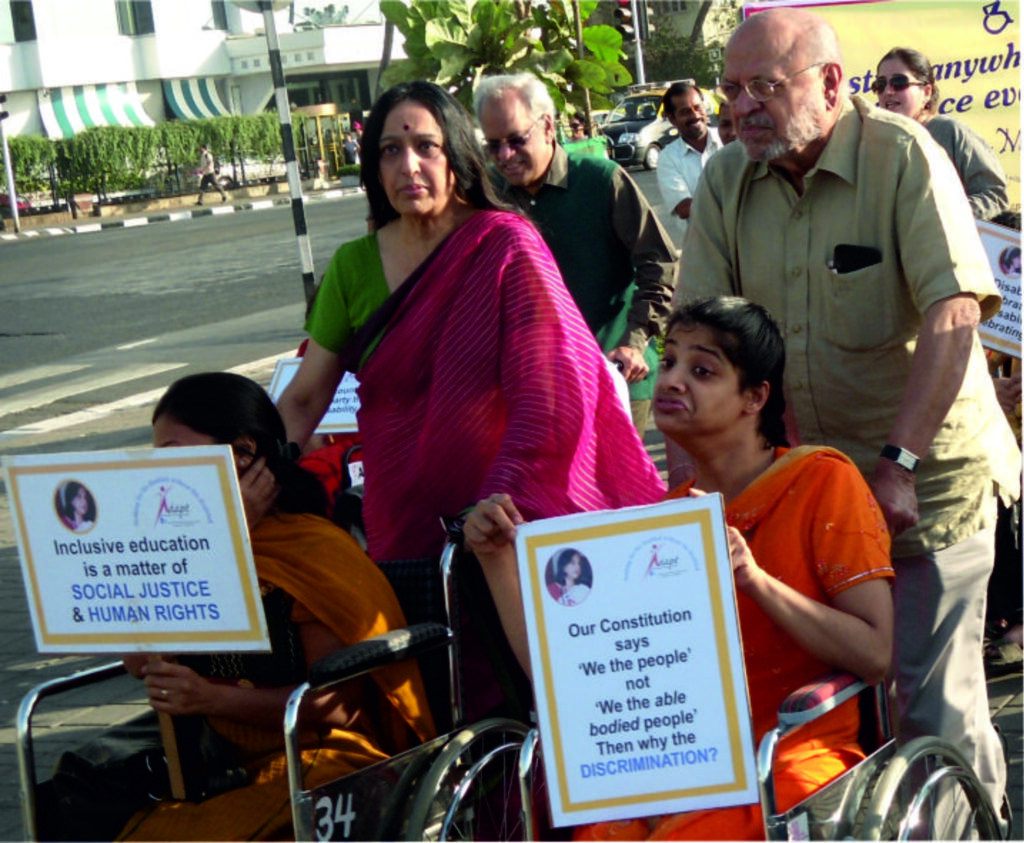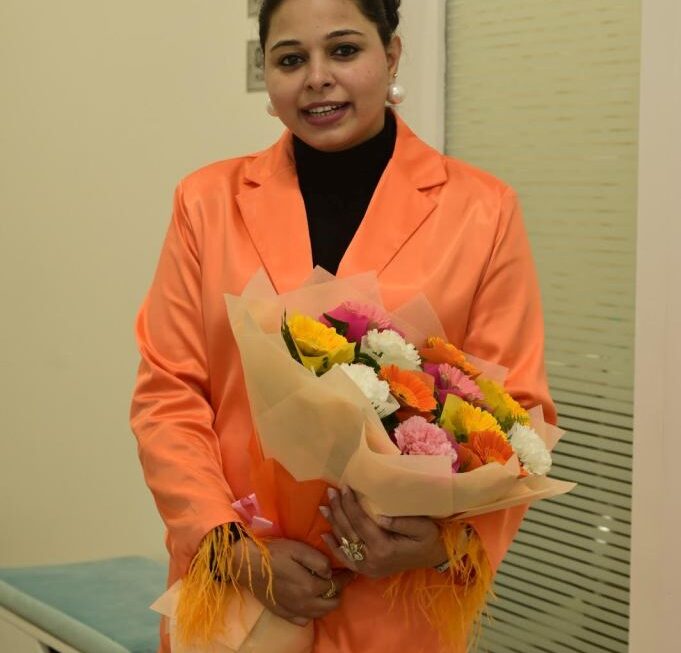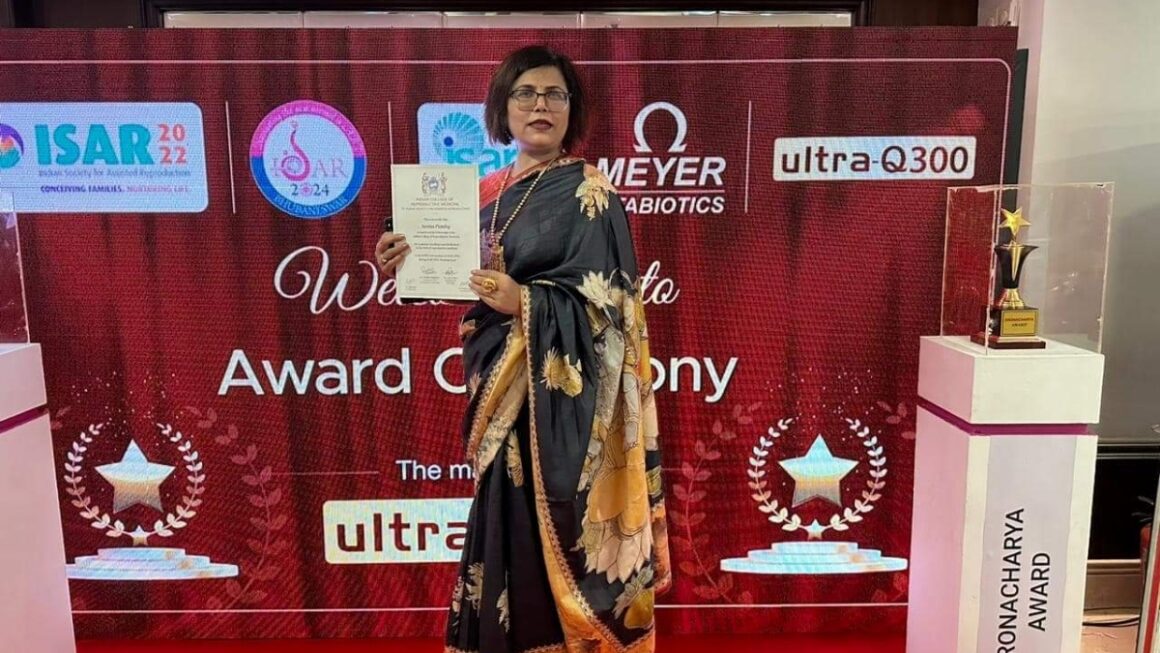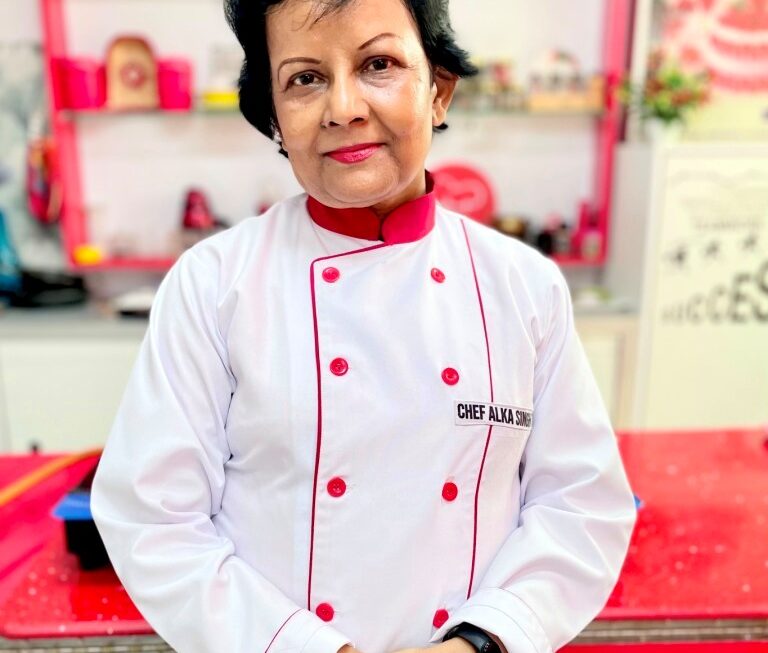The Spastics Society of India, now called ADAPT (Able Disabled All People Together) is a Non-Government Organisation (NGO) that was set up in 1972 by Dr Mithu Alur, a parent of a daughter who was born with cerebral palsy to address the lack of services and knowledge that existed at that time with an aim to alert the nation to its needs and show how the government and community could help them to be included in existing services.
ADAPT began a new model combining education and treatment under one roof. It moved children away from a medical hospital setting to a special school setting to demonstrate that multiply disabled children could be educated and get treatment through a holistic approach. Pedagogy, and manpower training were interwoven into the first innovative model. The organisation was unique in showing how professionalism could be delivered with care. These programmes lead the child through the academic curriculum of the SSC Board. Most of the children would move into mainstream schools during the secondary years as part of the organisation’s philosophy of promoting ‘inclusive education, which is most beneficial for the child.Starting with 3 children with cerebral palsy in a small premise in Colaba, today ADAPT is one of the largest NGOs in India. There are now over a million children and families who have benefited directly from the services of the mother organization. Their alumni include PhDs, Masters, and Graduates in social sciences, in pure sciences, mathematics, computing, chartered accountancy, and journalism. The current direct services are provided In Mumbai at Colaba, Bandra, Chembur, Dharavi and Pelhar in Palghar district, Maharashtra.
Dr Mithu Alur
Padmashri winner Dr Mithu Alur began a life-changing movement with a remarkable vision. An idea of a world where children and adults with a disability would stand shoulder-to-shoulder, with normal people, as independent citizens, mainstreamed into our society. The Spastics Society of India was founded by Dr Mithu Alur in 1973. Mithu has been working with International partners, eminent citizens, and a resolute band of dedicated, trained professionals, to create a nation where the able and disabled are equal. Mithu’s work has been mainly with the needy, the helpless, and disabled people also disadvantaged by poverty. She has worked to serve India in true Gandhian spirit, using humanism, federalism and on a spiritual level, beyond prestige, power and money. She has not worked for politics or religion, but for building a caring, disabled-friendly India. The reason for her involvement in disabled children is her daughter Malini, who is disabled. Malini has done two Masters – in Gender Studies and in Information Technology from the University of London. Dr. Alur believed in the holistic all-round development of children working for disabled children who she described as ‘an intelligent mind trapped in a disobedient body’ education and health care of the child was inextricably linked and both had to be nourished for the complete well-being of the child under a social model.
Mithu is an Educationist, Social Reformer, Lecturer, Researcher and Author. On the international front, Mithu began the concept of a Dialogue between the North-South countries and has organised three conferences called the North-South Dialogue. South Africa, Brazil, Bangladesh, Hong Kong (China), Canada, Norway, U.K., Chile, Pakistan and Russia participated in the Dialogues. In the area of pedagogy, Dr Alur has initiated a course in collaboration with the Institute of Child Health (CICH) London is funded by the Women’s Council, UK which reaches out to Master Trainers’ in the Asia Pacific Region. This course has valuable inputs from CICH and is also supported by ADAPT. The Community Initiatives in Inclusion (CII) course is in its sixth year and has been attracting students from Mongolia, Bangladesh, Nepal, Tonga, Malaysia, Pakistan, Indonesia, Tajikistan, Tonga, Sri Lanka, China, Cambodia and Vietnam and from all over India. For over 50 years Dr Alur has written and published extensively on the issues of child rights and the ‘hows’ of educating poor children She has straddled the social policy dimension with cost-effective methodologies of addressing the educational needs of children.
Malini Chib
A woman who defied all odds to emerge victorious in spite of a crippling disability and an indifferent society; who dragged herself out of the limits of her condition.
The inspiration behind ADAPT, Chib is the founder and co-chairperson of ADAPT Rights Group, a part of the ADAPT (Able Disable All People Together) organisation. The Rights Group was formed with the belief that both “able” and “disabled” should work together to form an “inclusive” society where “all” are welcomed and included.
She also heads the Library and Media Services. She is responsible for the micro and macro advocacy efforts of the ADAPT Rights Group. She lent her skills by organizing an ‘Inclusive Job Fair’ for disabled youth. She also conducts Empowerment and sensitization courses for individuals, corporates, parents, professionals and disabled activists.
In 2011, the Indian Ministry of Social Justice and Empowerment awarded Chib the National Award for the Empowerment of Persons with Disabilities in the category of Role Model. In 2017, on the occasion of World Cerebral Palsy Day, Chib was honoured with the first global Cerebral Palsy Day Award for ensuring the rights and entitlements of persons with disability conferred the Cerebral Palsy Alliance, Australia. One Little Finger is the autobiography of Malini Chib. As life became a tear and a smile for her, Malini tells us the story of her heroic battle against adversity, prejudice, stigmas, and stereotypes, her will to succeed and her search for an identity in a contrary world. And in the process of self-realization, she becomes a beacon of hope for everyone
–By Aditi Gupta


